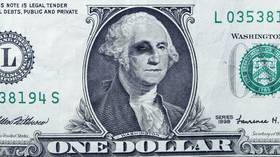EU & Japan strike ‘connectivity’ deal to link Asia & to counter China’s new Silk Road
The European Union has included Japan in its Asia “connectivity” plan, signing a landmark deal to coordinate transport, energy and digital projects amid concerns over China’s dominance in infrastructure funding.
The agreement formally seals Japan’s engagement in the new EU-Asia connectivity plan and was signed by Japanese Prime Minister Shinzo Abe and European Commission President Jean-Claude Juncker at the Europa Connectivity Forum in Brussels on Friday.
“Whether it be a single road or a single port, when the EU and Japan undertake something, we are able to build sustainable, rules-based connectivity from the Indo-Pacific to the Western Balkans and Africa,” Abe told reporters ahead of the signing ceremony.
Also on rt.com Why China believes the World needs the new Silk Road: Beijing's ambitious mega-project explainedEU officials have turned to Japan in an apparent move to evade attracting Chinese financing, fearing what they see as China’s dominance in infrastructure building across Eastern Europe, Africa and Asia. Since 2013, China funded the construction of bridges, roads and tunnels across more than 60 countries under its Belt and Road infrastructure initiative, which aims to build a network of land and sea links with Southeast Asia, Central Asia, the Middle East, Europe and Africa.
“The sea route that leads to the Mediterranean and the Atlantic must be open,” Abe said, emphasizing the deal’s signatories’ aim to prevent China-financed projects from dominating EU-Asia transport links.
“Japan and the EU endeavor to ensure synergies and complementarity between their respective cooperation on connectivity and quality infrastructure with partner third countries and coordinate action, notably in the regions of the Western Balkans, Eastern Europe, Central Asia, Indo-Pacific, as well as in Africa,” the bilateral document states.
Also on rt.com China’s new Silk Road to link Africa's huge market to the rest of the world – officialThe deal is also to ensure “transparent procurement practices,” as well as “free, open, fair, non-discriminatory and predictable regional and international trade and investment.” It will be backed by a €60 billion ($65.48 billion) EU guarantee fund, development banks and private investors. The signatories promised to pay “utmost attention” to the sides’ “fiscal capacity and debt-sustainability.” Jean-Claude Juncker promised to help build infrastructure “without mountains of debt” or a reliance “on a single country.”
Although not all the money distributed under the deal will be spent in Asia, the EU’s new agenda makes spending on infrastructure links with Asia official EU policy, which also involves the bloc’s common budget.
The two-day Europa Connectivity Forum is a multi-nation convention which aims to enforce ties between governments, financial institutions and private sectors, across Europe and beyond. This year’s Forum, held under the theme “EU-Asia Connectivity: Building Bridges for a Sustainable Future,” is focused on strengthening cooperation between the EU and its partners in the Asia-Pacific region.
For more stories on economy & finance visit RT's business section














